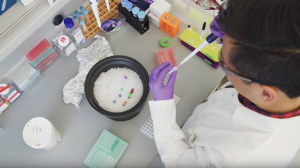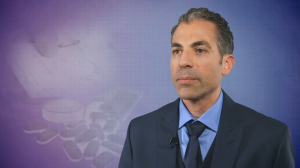NEW YORK (Reuters Health) – New research indicates that over half of men who choose watchful waiting as the initial strategy for prostate cancer require no treatment on long-term follow-up.
“Patients and doctors should not assume that any/all cancer must be immediately treated,” lead author Dr. Martin G. Sanda, from Beth Israel Deaconess Medical Center, Boston, told Reuters Health. “Some very early tumors, such as prostate cancers that have the lowest risk profile, can safely be monitored and their treatment can be reserved for those that show growth during the subsequent monitoring period.”
Predictors of not requiring treatment, according to the report in the August 31st online issue of the Journal of Clinical Oncology, include older age and lesser cancer severity at diagnosis.
The findings stem from an investigation of 3331 men who were enrolled in the Health Professionals Follow-up Study and were diagnosed with prostate cancer from 1986 to 2007. Of these patients, 342 (10.3%) selected deferred treatment (watchful waiting), defined as not receiving treatment for more than 1 year after diagnosis.
During a mean follow-up period of 7.7 years, 174 (51%) of the deferred treatment patients remained untreated. For the remainder, treatment began 3.9 years after diagnosis, on average.
Correlates of not progressing to treatment included older age, lower Gleason score, low PSA at diagnosis, and lower clinical stage, the report indicates.
Metastasis rates for deferred treatment patients were similar to those for men who received immediate treatment: 7.2 vs. 8.1 per 1000 person-years. Likewise, prostate cancer-specific death rates were similar: 2.4 vs. 2.6 per 1000 person-years with deferred and immediate treatment, respectively.
The current findings add “to the body of evidence reassuring physicians that it is safe to observe before treating many men with localized disease,” Dr. Anthony Zietman, from Massachusetts General Hospital in Boston, writes in a related editorial. “I am optimistic that we can break our cultural addiction to immediate treatment for all and move toward discriminating, selective, and more socially responsible behavior in this challenging disease.”
Reference:
J Clin Oncol 2009.




